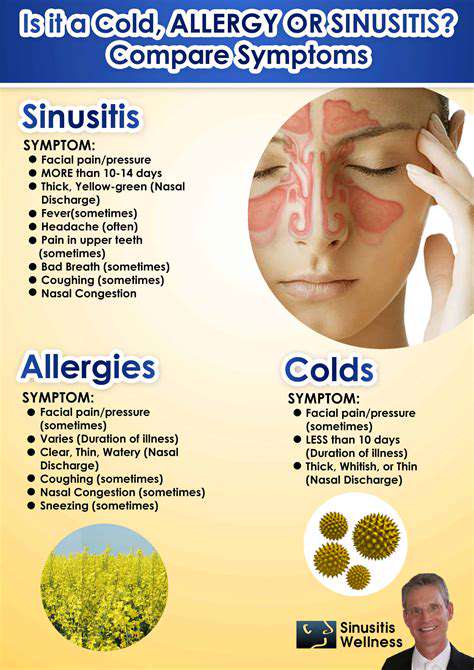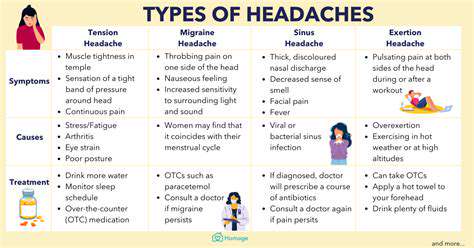Head Hurts to Cough: Possible Causes and Remedies
Table of contents
Coughing can increase intracranial pressure, causing head pain.
Chronic coughers may exacerbate existing headaches during coughing fits.
Sinusitis can create pressure leading to significant head pain when coughing.
Migraines can be triggered by coughing strains in susceptible individuals.
Home remedies include hydration and warm compresses for headache relief.
Consult a doctor if head pain with cough is persistent or severe.
Maintaining hydration and nutrition helps prevent cough-related headaches.
Avoiding allergens may reduce coughing and associated head pain.
Possible Causes of Head Pain When Coughing

Understanding the Physiology of Coughing
Coughing is a natural reflex designed to clear the airways of irritants, but it can be more complex than it seems. When we cough, the muscles of the chest and abdomen contract forcefully, which can lead to various physical sensations including pain. This sudden contraction may create pressure in different areas of the body, including the head. Because of this pressure, individuals who already experience headaches may notice an exacerbation during bouts of coughing.
Furthermore, the coughing action may alter blood flow temporarily, leading to sensations that can be mistaken for pain. The increase in intracranial pressure due to persistent coughing can trigger headache pain, particularly in individuals prone to migraines. Understanding these physiological responses can help in identifying the underlying causes of head pain during episodes of coughing.
Asthma or chronic obstructive pulmonary disease (COPD) sufferers may also experience head pain linked to their respiratory distress. This connection is largely due to the intense nature of the coughing that can occur during respiratory attacks, impacting not just the lungs but also the head and neck. Changes in pressure in the thoracic cavity may even lead to referred pain in the head.
Intriguingly, the type of cough can also influence the likelihood of experiencing head pain. Dry, hacking coughs, often associated with viral infections or irritants, might be more likely to cause discomfort compared to productive coughs. Understanding these nuances is vital in determining whether coughing itself is the root cause of head pain.
Cough-Related Conditions That Cause Head Pain
Several conditions exist that specifically relate to head pain when coughing, and it is essential to consider them. Sinusitis is one such condition characterized by inflammation of the sinuses, which can create pressure that builds up during coughing fits. This pressure can lead to significant head pain, particularly in the forehead and cheek areas. Chronic sinusitis may even intensify symptoms over time, worsening the discomfort during coughing episodes.
Pneumonia and bronchitis are additional respiratory conditions that can be remarkably painful and exacerbate head pain. The intense coughing associated with these ailments puts strain on the body, and inflammation can impact surrounding areas, including the head. Individuals with these conditions may find that the rhythm of their cough directly correlates with the onset of head pain.
Migraines and tension headaches can also be triggered by the act of coughing. For people with chronic headaches, the added strain from a cough can be enough to initiate a painful episode. Recognizing such patterns is crucial, as it not only aids in addressing the immediate pain but can also assist in managing long-term headache strategies.
Even more concerning are the cases related to serious conditions like intracranial hypertension or tumors. Ifheadaches become chronic and worsen with coughing, seeking medical attention becomes paramount. Although rare, these conditions can lead to severe complications if not adequately assessed and treated.
When to Seek Professional Guidance
While occasional head pain can be expected during coughing, persistent issues should not be overlooked. Consulting a healthcare professional when head pain accompanies coughing frequently is vital. Particularly concerning symptoms include unusual headache patterns, visual disturbances, or a sudden increase in intensity. These could indicate underlying health issues that require prompt evaluation and treatment.
A thorough medical assessment usually begins with a detailed history and physical examination, which can aid in identifying potential causes. Imaging studies might be ordered if conditions such as migraines or clusters are suspected or to rule out more severe issues like tumors. It is important for individuals to communicate all accompanying symptoms to their healthcare provider.
Self-diagnosing can be dangerous; thus, understanding when to seek expertise can lead to better outcomes. Chronic or worsening head pain associated with coughing should not be ignored, as timely intervention can prevent complications. This idea is crucial, especially for individuals with pre-existing medical conditions or those taking regular medications.
In addition, managing lifestyle factors such as stress and hydration can significantly affect the frequency and severity of cough-related head pain. Regular check-ups and open discussions with healthcare providers about symptoms can empower individuals to take charge of their health and make informed decisions regarding treatments.
Home Remedies and Preventive Measures
There are various home remedies that can be adopted to alleviate head pain associated with coughing. Basic practices such as staying hydrated can significantly impact the severity of both coughing and headaches. Drinking warm fluids, such as herbal teas or broths, helps soothe irritations in the throat and can ease the coughing reflex. This, in turn, may help mitigate the resulting head pain.
Inhaling steam from hot water or utilizing a humidifier can also provide relief for irritated airways, diminishing the urge to cough. Additionally, implementing relaxation techniques such as deep breathing or meditation can alter the body's response to pain, making it easier to cope with the discomfort caused by coughing. These practices can also reduce overall stress levels, which may help in preventing tension headaches.
Over-the-counter medications such as antihistamines or decongestants can play a role if allergies or sinus issues are the root causes of the cough. It's essential, however, to read labels and consult with a pharmacist or doctor if unsure about which medications will best suit your symptoms. Following proper dosage guidelines ensures that you don't exacerbate any existing conditions.
Lastly, maintaining a healthy lifestyle through regular exercise, adequate sleep, and a balanced diet can contribute to overall resilience against respiratory issues. Focusing on wellness initiatives yields significant long-term benefits, often providing a natural buffer against both cough-related head pain and other ailments that could compromise quality of life.
Effective Remedies for Head Pain When Coughing

Understanding the Connection Between Coughing and Head Pain
Coughing can often trigger head pain due to a variety of reasons. When you cough, your body undergoes a sudden increase in pressure, which can affect your skull and brain. This can lead to headaches, especially if the coughing is intense or prolonged. Understanding this connection is crucial in order to manage symptoms effectively.
One of the primary causes of head pain while coughing is tension-type headaches. These occur when the muscles in the neck and scalp tighten, often exacerbated by the force of a cough. In some cases, the intensity of the cough can lead to muscle fatigue and, consequently, pain radiating to the head.
Additionally, sinus pressure due to allergies or infections can contribute to head pain during coughing. When mucus builds up in the sinuses, it puts pressure on surrounding areas, heightening the chances of experiencing a headache. This relationship highlights the importance of addressing underlying sinus issues.
Moreover, certain neurological conditions may also contribute to headaches that coincide with coughing. Such occurrences can indicate underlying health issues that necessitate medical attention. Therefore, a comprehensive evaluation may be necessary to determine the cause of both the cough and the headache.
Home Remedies for Relieving Cough-Related Head Pain
One effective home remedy is the use of warm compresses. Applying a warm cloth to your forehead can help alleviate tension and improve blood flow. This simple method can significantly reduce the discomfort caused by headaches after coughing. It not only relaxes tight muscles but also provides a soothing effect that can ease your symptoms.
Staying hydrated is another crucial step. Drinking plenty of fluids helps thin mucus in the respiratory system, making it easier to cough up. When your body is well-hydrated, it can help reduce the intensity and frequency of coughing, thereby diminishing the associated headache pain. Water, herbal teas, and broths are all excellent choices.
Ginger tea is also known for its anti-inflammatory properties. It may help soothe the throat and reduce coughing irritation. This can indirectly lessen head pain associated with constant coughing, providing a holistic approach to managing your symptoms. Incorporating ginger into your diet can be highly beneficial.
Incorporating relaxation techniques, such as deep breathing or meditation, can also be effective in reducing both coughing spells and associated headaches. These techniques not only alleviate immediate discomfort but can also promote overall well-being, helping you to manage stressors that may be contributing to your symptoms.
When to Seek Professional Medical Help
While home remedies can be effective, it is essential to recognize when professional help is needed. If coughing persists for more than a week, it could indicate an underlying condition that requires medical attention. Head pain that occurs concurrently with severe coughing should never be ignored, especially if other symptoms accompany it, such as fever or difficulty breathing.
Severe headaches that arise suddenly or significantly worsen due to coughing may suggest more serious issues like migraines or tension headaches, which could necessitate a doctor's evaluation. Seeking treatment can provide you with specific strategies tailored to your condition, ensuring comprehensive care.
If you experience any unusual symptoms, including vision changes or nausea along with head pain while coughing, it is critical to seek medical advice. These symptoms may indicate neurological issues that need prompt evaluation. A thorough medical history, combined with diagnostic tests, can help rule out potential risks.
Moreover, persistent coughing accompanied by head pain could signal infections such as sinusitis or bronchitis. In such cases, treatment may involve antibiotics or other medications to address the root cause of the symptoms. Consulting with a healthcare provider is vital to obtain an accurate diagnosis and appropriate treatment plan.
Preventing Cough-Induced Head Pain
Preventive measures can significantly mitigate the occurrence of head pain during coughing. Maintaining a healthy immune system through proper nutrition is key. A balanced diet rich in vitamins and minerals can reduce the risk of infections that lead to coughing. Foods like fruits, vegetables, and whole grains support overall health and resilience against illnesses.
Proper hydration is crucial in preventing dryness that can lead to coughing. Keeping your environment humid can ease respiratory discomfort, reducing the likelihood of coughing-related headaches. The use of humidifiers during dry weather can be immensely helpful in maintaining moisture levels in the air.
Avoiding allergens and irritants also plays a substantial role in prevention. Identifying and minimizing exposure to triggers such as dust, pollen, or smoke can decrease coughing episodes. By reducing irritation in your airways, you can effectively lower the risk of developing related head pain.
Lastly, regular exercise encourages overall respiratory health and can enhance your body's capacity to manage coughing. Engaging in activities like swimming or yoga can strengthen respiratory muscles. Such exercises may help reduce the severity of coughing episodes, consequently minimizing their association with head pain.





